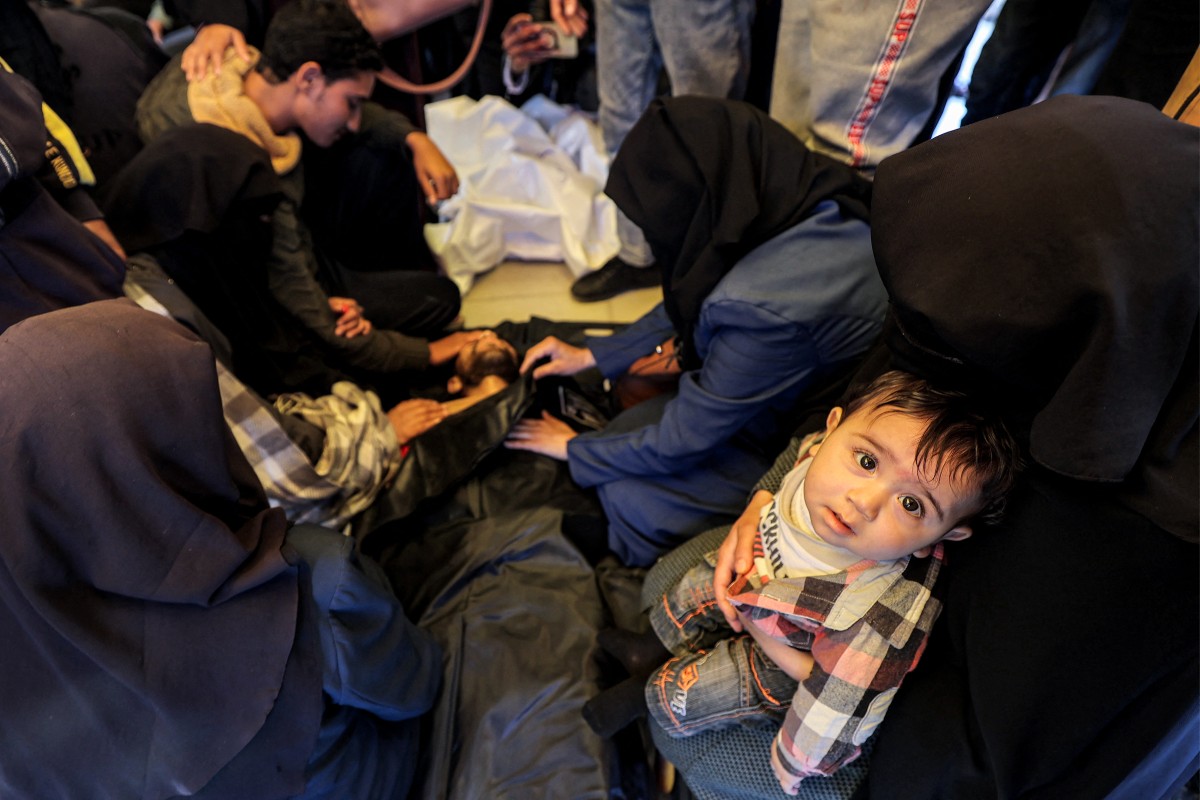Geneva, Switzerland — The UN rights chief called on countries to halt a “humanitarian catastrophe” in Gaza, where a total Israeli blockade on aid is pushing the Palestinian territory towards a collapse of critical life-saving support;
“As the complete blockade of assistance essential for survival enters its ninth week, there must be concerted international efforts to stop this humanitarian catastrophe from reaching a new, unseen level,” Volker Turk said in a statement.
Israel strictly controls all inflows of international aid vital for the 2.4 million Palestinians in the Gaza Strip.
It halted aid deliveries to Gaza on March 2, days before the collapse of a ceasefire that had significantly reduced hostilities after 15 months of war.
Supplies are dwindling and the UN’s World Food Programme last Friday said it had sent out its “last remaining food stocks”.
The UN rights office cautioned that Gaza bakeries had now stopped working as flour and fuel had run out, while the remaining stocks of food were being rapidly depleted.
‘War crime’ –
“Any use of starvation of the civilian population as a method of war constitutes a war crime, and so do all forms of collective punishment,” Turk stressed in the statement.
The UN rights chief also warned that a reported Israeli plan to declare the Rafah governorate in the far south of Gaza as a new “humanitarian zone” would require Palestinians to move there to receive food and other aid.
“Such a plan will almost certainly mean large parts of Gaza and those who cannot easily move, including people with disabilities, those who are sick or injured, and women supporting entire families, will be forced to go without food,” he said.
Turk also decried that Israel was continuing to strike locations in Gaza where civilians were sheltering.
Between March 18 and April 27, the UN rights office said it had recorded 259 attacks on residential buildings and 99 on tents of internally displaced people, most of them resulting in fatalities.
Forty of the attacks on tent dwellings reportedly took place in Al-Mawasi, where the Israeli army has repeatedly told civilians to seek refuge, it pointed out.
Turk warned that such “incidents reflect the pattern we have seen during this escalation, of attacks that raise grave concerns of violations of the principles of distinction, proportionality and precautions”.
“Each of these incidents must be fully investigated,” he insisted, stressing that “intentionally directing attacks against civilians not taking a direct part in hostilities would constitute a war crime.”
The rights chief also highlighted continued targeting of “civilian objects indispensable to the survival of the population”, like water trucks and excavators needed to remove debris to allow aid to reach those in need.
The rights office warned that the cumulative impact of Israeli forces conduct in Gaza appeared to be inflicting “conditions of life increasingly incompatible with (Palestinians’) continued existence as a group in Gaza”.
“Third States have clear obligations under international law to ensure that such conduct stops immediately, and they must act accordingly,” Turk insisted.
“They also must search for and bring to justice all perpetrators of crimes under international law.”








